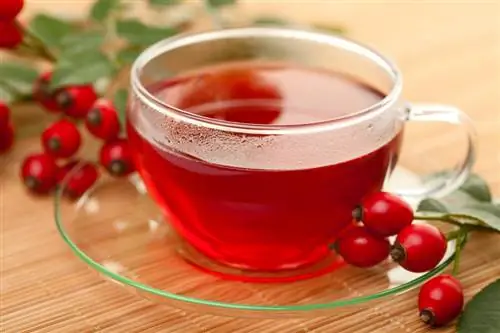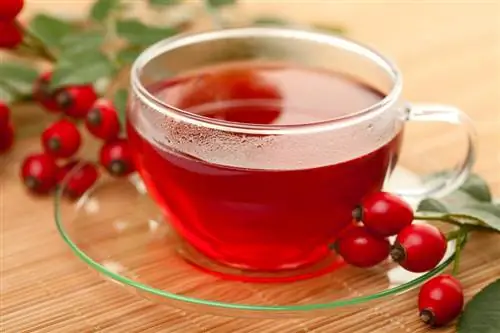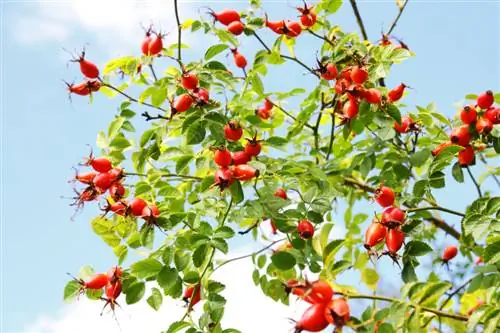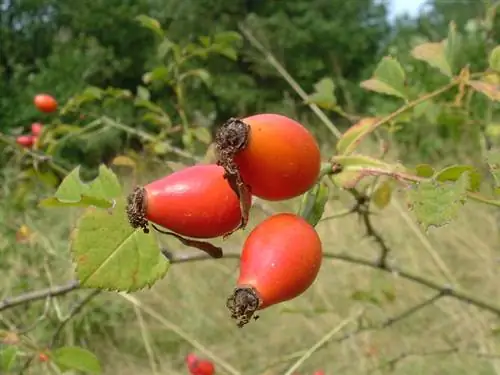- Author admin [email protected].
- Public 2023-12-16 16:46.
- Last modified 2025-01-23 11:20.
Rosehips - they decorate the dog rose, dog rose and other roses over the autumn and winter. With their bright red color they catch the eye and yet what is overlooked is that they are edible and their he alth value is far superior to that of other fruits.

Why are rose hips he althy?
Rosehips are very he althy as they are rich in vitamin C, vitamin B1, carotene, iron, potassium and magnesium. They support the immune system, help with kidney and bladder problems, calm the nerves and relieve pain as well as promote iron supply and skin he alth.
Rosehips=nutrient bombs
In the autumn and winter the range of local fruits looks poor. Even apples soon become overgrown and quickly lose their vitamins. Therefore the rose hip comes at just the right time. It clings to (wild) roses from late summer to February. Their content of vital substances is enormous.
100 g of this fruit contains between 400 and 5,000 mg of vitamin C, depending on the variety and immediately after harvest. This means that rose hips are richer in vitamin C than citrus fruits. Only sea buckthorn and acerola cherries can beat them in this regard.
In addition to vitamin C, which oxidizes with storage, rose hips contain a we alth of other nutrients. These include, among others, the following nutrients:
- Carotene (for vitamin A formation)
- Iron
- Magnesium
- Potassium
- Vitamin B1
- tannins
What rose hips are good for
The tannins in rose hips have a diuretic effect. This can be helpful for kidney and bladder problems. Vitamin B1 calms the nerves and relieves pain. The high iron content helps with anemia. People with an increased need for iron, such as pregnant women, breastfeeding women and women in general, find rose hips a good source of iron. The iron is well absorbed thanks to the vitamin C it contains.
The hard seeds of the rose hip also contain omega-3 and omega-6 fatty acids. The oil that can be extracted from the seeds serves, among other things, to tighten the skin and is able to prevent skin impurities. Last but not least, rose hips help with:
- Fever and infections
- Stomach problems
- a weakened immune system and colds
Tips & Tricks
How best to preserve the he alth value of rose hips after harvest? The rose hips should either be consumed immediately and fresh or dried at temperatures below 40 °C. If the rose hips are heated too much, vitamin C and the B vitamins are destroyed.






